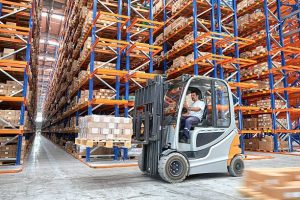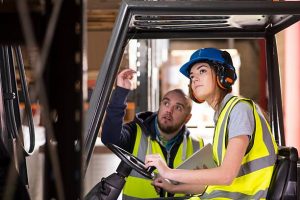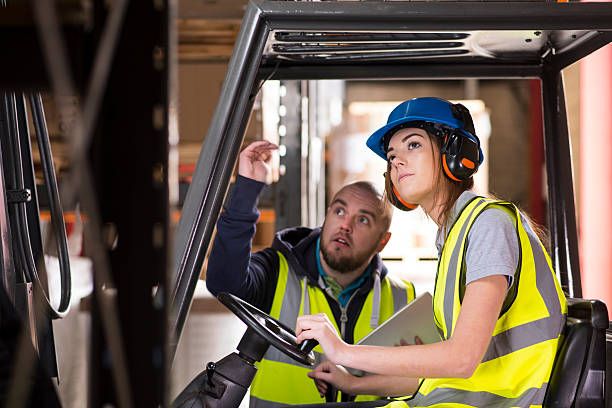So You Think a Forklift Accident Won’t Happen to You?

Image courtesy of iStock by Getty Images – Photo by stockvisual
Forklifts are slow. Once you’ve learned how, they’re pretty easy to operate. In most warehouse and industrial settings, they cover the same ground day in and day out. You’ve been operating one or supervised their operation for years and don’t think a forklift accident will happen to you or in your workplace. Don’t be so confident!
The National Institute of Occupational Safety and Health (NIOSH) certainly isn’t confident and as a national body that keeps tabs on all kinds of health and safety issues, they are in a position to know. According to NIOSH, “nearly 100 workers are killed and another 20,000 are seriously injured in forklift-related incidents” each and every year in the United States alone. Are you surprised? Do you still think a forklift accident won’t happen to you?
According to legal sources, the primary cause of forklift accidents is operator negligence:
• Topping the list is speed. Forklifts are not designed to be driven fast, but when the pressure is on, lift truck operators often drive them too fast. In some cases, this results in a collision with a pedestrian in a blind spot. In other cases, the forklift tips over when the operator rounds a corner too fast.
• Unsafe loads are another frequent cause of forklift accidents. The load may be too high, off-balance, or carried when the forks are raised. Whatever the reason, unsafe loads can and do topple the forks and injure bystanders, or cause costly destruction. In some cases, an unsafe load can cause the forklift to tip over. When this happens, the operator will almost certainly be injured and if they are thrown from the carriage, can easily be killed.
• Operator inattention is the third most frequent cause of forklift accidents. Operating a forklift can become a repetitive exercise and an operator’s attention can wander, or they just become tired towards the end of a long day. All it takes is one unexpected pedestrian in an area that is usually empty for a serious forklift accident to occur.
Other causes of forklift accidents include using forklifts in unfamiliar ways. A new forklift attachment or driving down a sloping surface when the operator routinely drives on a flat surface are 2 examples of this.
It’s easy to blame the operator, but attorneys seeking damages for their clients also blame the management. It is management’s responsibility to ensure that all lift truck operators are properly trained, operate within safety guidelines, and are not pushed to drive recklessly or when overly fatigued.

Image courtesy of iStock by Getty Images – Photo by sturti
It’s important to emphasize that human error is behind the vast majority of forklift accidents. Operating a used forklift or reconditioned forklift, like operating a new one, is only as safe as the operator. On occasion, though, old forklift parts can cause accidents, so it’s important to stick to a regular inspection and maintenance schedule. If you are diligent, you can prevent forklift accidents from happening to you. Just don’t get complacent and think they won’t happen to you. If you don’t do your part in their prevention, the odds are stacked against you.

